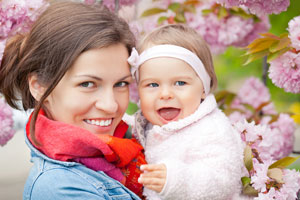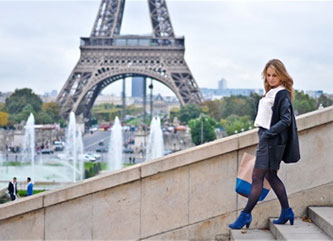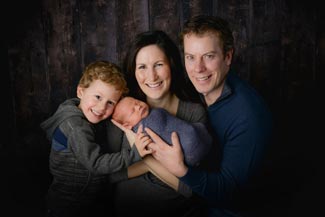Au pair House Rules
 The need for House Rules is clear to the experienced Canadian employer, the residential training colleges and the employment Au pair agencies in Canada. House Rules may vary greatly, but everyone agrees that the wise employer will have decided on their constituents before even interviewing an Au pair . Rules can always be relaxed but it causes problems when they are made up as the occasion arises. Do discuss the broad principles with your husband and/or anyone else who may be affected.
The need for House Rules is clear to the experienced Canadian employer, the residential training colleges and the employment Au pair agencies in Canada. House Rules may vary greatly, but everyone agrees that the wise employer will have decided on their constituents before even interviewing an Au pair . Rules can always be relaxed but it causes problems when they are made up as the occasion arises. Do discuss the broad principles with your husband and/or anyone else who may be affected.
To make your lives together work, it is essential that you think through as precisely as possible what your views are on the following:
- smoking,
- drinking and drunkenness,
- boyfriends and curfew,
- what you are called,
- how the Au pair is to use the car if at all,
- where in the house the Au pair may and may not go and what she may and may not use without asking,
- when and how often she may use the phone,
- who may and may not stay, and for how long,
- how much time you intend to spend in her company,
- and the need for confidentiality on both sides.
House Rules do not cover ‘Sackable Offences’, though you need to be even clearer about these, and have thought about them properly before interviewing. Having said that, a House Rule, if ignored repeatedly and after warnings, can often turn into a ‘Sackable Offence’.
Confidentiality and the Au pair
The Federation of Recruitment and Employment Services (FRES) model contract of employment states that ‘it is a condition of employment that now and at all times in the future you keep secret the affairs and concerns of the household and its transactions and business.’
It’s not just the royals, rock stars and Hollywood who care about their privacy. There are instances when the Au pair or nanny’s discretion can matter very much to you, particularly if you are nearing the divorce courts, are rich, political or important in public life. Your child could be an abduction target or the press could be riveted by titbits about your private world.
Anne Diamond, a TV presenter, won an injunction granted over the telephone from the judge’s home to stop the presses and silence her former nanny. It was granted on the basis that the nanny as an employee owed the couple a duty not to reveal confidential information acquired during the course of her job.
Even if an employer is not obviously vulnerable, it is sensible to mention to your Au pair that you do not like her to gossip about your family and friends to anyone. Of course, if she is human she is bound to chat about her job, but she should be made aware that it is unprofessional and potentially trouble making. The onus is on the employer to be discreet; blackmail could be a temptation to a nanny scorned, or in the very rare circumstances when an employer hires a complete nutter.
The Au pair’s dress on duty
Footwear is often a problem. Several mothers raise the vexed question of pink fluffy slippers with high heels. Not so much the slippers, but the fact that some nannies and mother’s helps like to wear them all day around the house. High heels are ruinous to wood floors or lino and are dangerous up and down the stairs when carrying a baby or child. They also discourage the girl from running with or after the children. In an emergency an Au pair moves quicker in flat shoes. There is a lot of bending and stretching when looking after children, so trousers or jeans are sensible.
Is the Au pair allowed to smoke
Ninety-nine per cent of Canadian employers prefer non-smokers Au pairs. A growing proportion are militant about it and will sack an Au pair who lies about her habit. Some are more lenient and ban it while the Au pair is on duty and a few, some of whom may themselves be smokers, just don’t mind. Some employers insist that smoking only occurs outside the house; others let the nanny smoke in her own bedroom. One realistic working mother says that she has to ‘leave it to the nanny’s discretion, but hoped that she didn’t’. Several nannies told us that they were well aware that their employers disapproved but didn’t want to bring up the subject.
All the residential training colleges have strict non-smoking policies and Princess Christian College guarantees adherence to its rule because it has smoke detectors. This attitude provides an excellent example and good training for nannies who are highly unlikely to be able to smoke at the home of their employers.
All the agencies report that employers are becoming increasingly mindful of the health and fire hazard caused by smokers so that almost no one wants to employ an Au pair who smokes, any more than one who can’t drive. Nannies are well aware of the current trends, but can’t, as Louise Davis of Norland College sagely comments, ‘give it up the week before taking a job’. Never trust a self-confessed ‘social smoker’ not to be a pack-a-day girl on the quiet.
If you run a smoke-free household , don’t forget to remind her that you won’t like her friends smoking either. Any new mother has only to imagine her reaction to the sight of an eight-month-old baby reflectively chewing a fag end left around by his Au pair , as one Canadian employer reports, to understand why this subject causes feelings to run high. Another thing to remember, if your au pair is allowed to smoke in the house (one employer allows her nanny to smoke only in the garden), is to ban her smoking when she is ironing. One mother was so cross when a large stack of freshly laundered clothes stank of tobacco that she insisted that it all be washed again.
It is not part of a caring professional nanny’s image to smoke. It would be helpful if the NNEB and other courses spelled this out to trainees. Apart from the fire and health dangers, a committed smoker needs a cigarette as often as she can make time for one. This does not bode well for her charges and their schedules. Shortness of temper and of breath, and dealing with nicotine craving are far from ideal for an au pair.
Drinking and drunkenness issues of an Au pair
Like all good things, a bit of drinking is fine so long as it is not overdone. One employer sums it up succinctly with, ‘I don’t mind as long as they don’t get pissed.’ Most people agree that Au pairs should not drink while on duty and shouldn’t drink their employer’s liquor unless it is offered. Some employers go so far as to prime the nanny straight away that, when she is offered a drink by anyone when she is on duty she should not accept more than one glass. Many Canadian employers, however, offer the Au pair a drink at the end of a hard day and exchange news and views over it.
Drunk Au pairs are a rarity and there seem to be few instances of hangovers, falling up the stairs at night, or passing out on the bathroom floor at 4 am. These real reported examples are probably exceptions. Beware the Celtic fringe, Australians and New Zealanders; all receive dishonourable mentions here.
It is not sensible to give your Au pair or babysitter a bottle of wine before exiting in your glad rags. Having drunk half a bottle, could she get three children out of a burning house? One of the principals of the private colleges reminds us: ‘Young girls in London for the first time, and not used to drinking, do get drunk.’
Tell your Au pair if you allow her to use your car that she may not drink and drive whether on or off duty. Regardless of any moral view, it invalidates the insurance if she is involved in an accident. Just as you would rather be oblivious to any effects of drink on your Au pair or mother’s help, similarly she shouldn’t have to cope with drunk employers.








